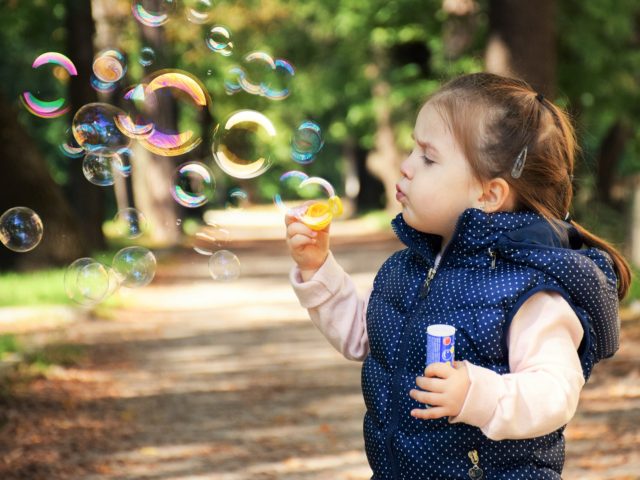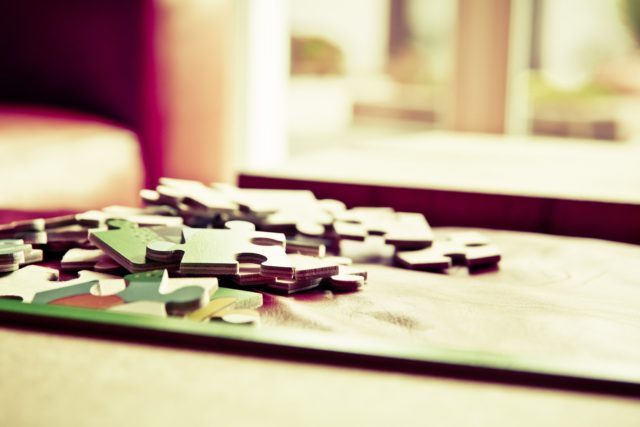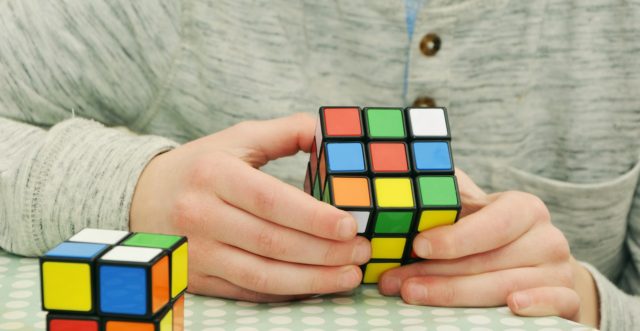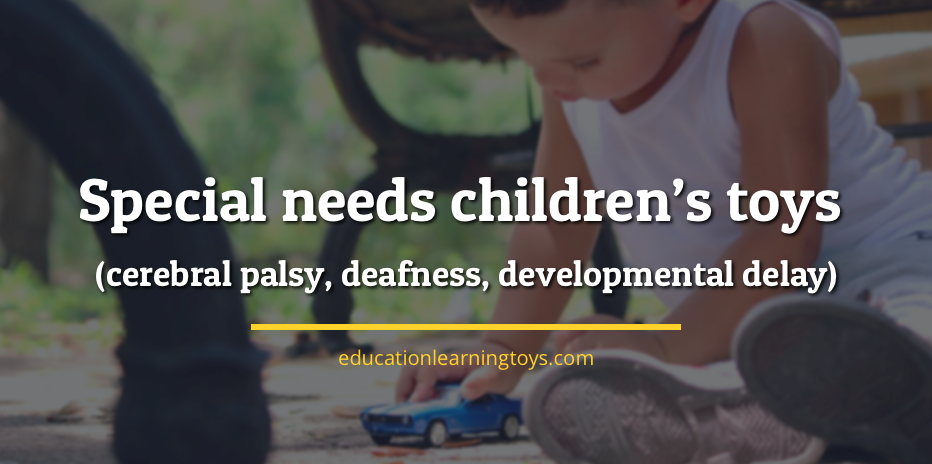You may have a child with special needs, or have friends or family members with children with special needs. The child may have cerebral palsy, or be deaf, or be developmentally delayed. If so, you may wonder what toy it’s appropriate to buy for them. Below there are some suggestions for you:
Cerebral Palsy Toy Modifications
If a child has Cerebral Palsy they may have their movement affected, and this can impact upon their coordination. Their fine motor skills are lacking. Their arms or legs could be weak, and their movements jerky or clumsy and uncontrolled. Poor hand-eye coordination. Children with cerebral palsy often find that regular toys are not practical for them to play with. So, toys can be modified to make them more suitable.
When toys are modified for children with cerebral palsy may benefit from the following modifications:
- Larger pieces
- Making pieces easier to get hold off by adding knobs
- Adding numbers to pieces, so if piece 1 and 2 can connect – they’ll both have a number on them
- A handle could be added on top to make it easier to carry
- A larger version of the toy could be used, ie. A large ball
- For very young children, there’s an EazyHold Pink Adaptive Utensil Holder, which could be used as an eating aid for cerebral palsy, arthritis, writing aid, crayon holder, pediatric utensil 2 pack. It fits comfortably on a child’s hand, it’s easy to clean and wipe safe. !

Toys and Activities for children with cerebral palsy
When trying to find the best type of toy for a child with cerebral palsy, it’s recommended that you take three things into account:
1. The Developmental Stage of the child – so selecting a toy that is relevant to what milestone they’re currently working on.
2. The Child’s Interests – because this will make the gift meaningful and relevant to them.
3. Safety – ensure that the gift is safe and ensure that it isn’t a toy that has been recalled due to safety concerns, by checking on the Consumer Product Safety Commission website.
Some ideas for toys with cerebral palsy include:
- Kinetic Sand – to help strengthen their hands
- Magnetic Building Blocks – so they can learn about shapes, colors, and develop hand-eye coordination
- Something Musical – a drum, tambourine’s, glockenspiel – these assist children with learning cause and effect and help with creativity.
- Books are important for children with cerebral palsy
- Lava Lamps
- Puzzles
- Balls
- Bubbles
- Talking toys
There are sensory products that can help children with cerebral palsy; there are water bubble walls with color changing LED lights.
There are toys called Squigz and Mini-squigz which can be used to put on all different surfaces, children can build with them, then they can be pulled off. They’re good for motor and visual skills.

Sensory Toys for Deaf Babies and Toddlers
If your child or the child you’re buying a toy for, is deaf or hearing impaired, the key purpose of sensory toys are to stimulate the senses, which if a child can’t hear, this is even more important, because they’ll need to learn and develop through their other senses.
- Dolls Houses for plastic dolls can be effective because they’re brightly colored and have different textures within them, good to help their imagination.
- Textured balls
- If a child has some hearing, toys which make a noise, can be beneficial to get them listening for that noise. This can be useful for children who have cochlear implants. Also even deaf children can feel some vibration from noise through their finger-tips.
- Children’s tool sets – so that they get to be physical, and use their fine motor skills
- Touchy-feely books – so that they get to experience the different textures, these are visually stimulating to look at and interesting to touch.
One site does make a good case for the fact that if you’re wanting toys for children with hearing loss, you don’t always have to spend a fortune on them, you can take minimal items and encourage creative play with these. Books are always good. Pretend food and kitchen tools could be turned into a grocery store, restaurant, family party, etc. It’s good to choose toys that will encourage children to develop in many ways with language, fine motor, gross motor and creative/imaginative play. A parent’s time and attention when playing is much more important than a particular expensive toy. Old clothes can be used for dressing up; play-dough can be used to make things; games such as dominoes, or cards can be used for a variety of games, magnet toys can be useful to encourage science etc.

Toys for Developmentally Delayed Babies
Fat Brain Toys is a site and store that has lots of toys for children with special needs. In their section on babies they have name puzzles, which have large pieces of name, that a child then places into the relevant letter shaped hole on the board.
There’s a Tobbles Neo game, which has lots of colorful almost half eggshell shapes, which can be stacked one on top of the other in a tower, it’s great for fine motor skills, coordination and spatial awareness.
Amazon has some Chew Necklace , Yuccer Silicone Teething Necklace for Baby Sensory Chew Toys for Autistic Children, they come with 4 in a pack of different colors. They’re non-toxic, can be cleaned with water and used to attract the baby’s attention.
Amazon also have an Edushape Sensory See-Me 7 inch ball, which are excellent for babies for both fun and therapy. They have a see-through appearance, and come in different colors. The balls have little nubs on them, which gives them an interesting texture for children. The ball with help with verbalizing, developing fine and gross motor skills, hand-eye coordination and for children to become sociable.
So, in conclusion, there definitely are a range of toys out there for children with special needs, such as cerebral palsy, hearing impairments/deafness and developmentally delayed children. It’s always worth learning more about what your child enjoys and is interested in, to try to make the gift to them as relevant as possible, and to be creative with what is at hand, and make the most of every learning opportunity to develop skills and creativity.




